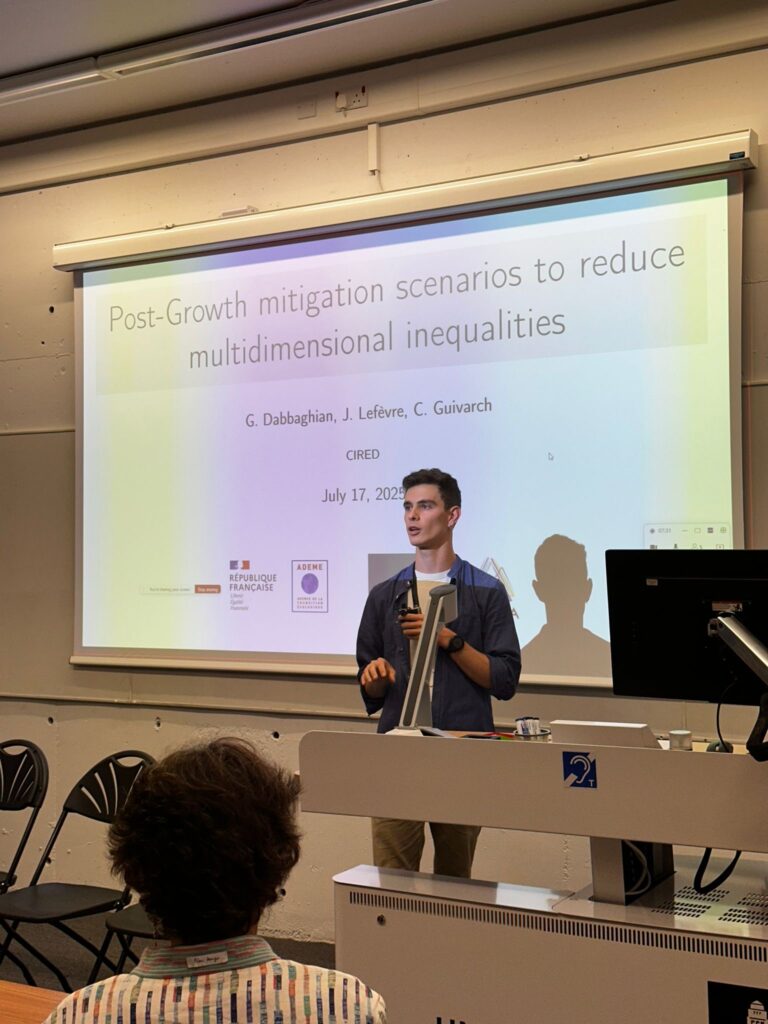Céline Guivarch, CIRED
The third edition of the Scenarios Forum took place in Leeds, UK, from 16–18 July. It brought together over 300 researchers and experts, who shared advances in scenario methods and reflected on their use in addressing the interconnected crises of climate change and biodiversity loss. Discussions covered a wide range of topics, from health impacts and tipping points to circularity and urban scenarios, highlighting the growing scope and systemic nature of scenario-based research. Many conversations were shaped by a strong sense of urgency, with increased attention given to overshoot scenarios and, notably, to equity and justice, which emerged as a central theme of the conference.
CIRED contributed two presentations developed within the PRISMA project, both of which focused on equity.
Augustin Danneaux presented joint work with Thomas Le Gallic, Julien Lefèvre, Saritha S. Vishwanathan and Gang He on ‘Futures for workers and climate: regional disparities of just transitions in China and India’. Using the Imaclim-R model, which has been enhanced to include sub-national economic dynamics, the study assesses the employment impacts of a fossil fuel phase-out, revealing regional vulnerabilities and underlining the need for targeted support policies to ensure a just transition.

Gabriele Dabbaghian presented work with Céline Guivarch and Julien Lefèvre on ‘Post-growth mitigation scenarios to reduce inequality between countries’. Using the Imaclim-R model to explore four global scenarios, the study found that only a combination of post-growth strategies in high-income countries and rapid productivity convergence across regions could reduce multidimensional inequalities to an unprecedentedly low level.

This news is part of a project that has received funding from the European Union’s Horizon Europe programme under grant agreement No 101081604 – PRISMA. Views and opinions expressed are however those of the speaker(s) only and do not necessarily reflect those of the European Union or the European Climate, Infrastructure and Environment Executive Agency (CINEA). Neither the European Union nor the granting authority can be held responsible for them.
Follow PRISMA’s outcomes and results on social media, via the #net0prisma
